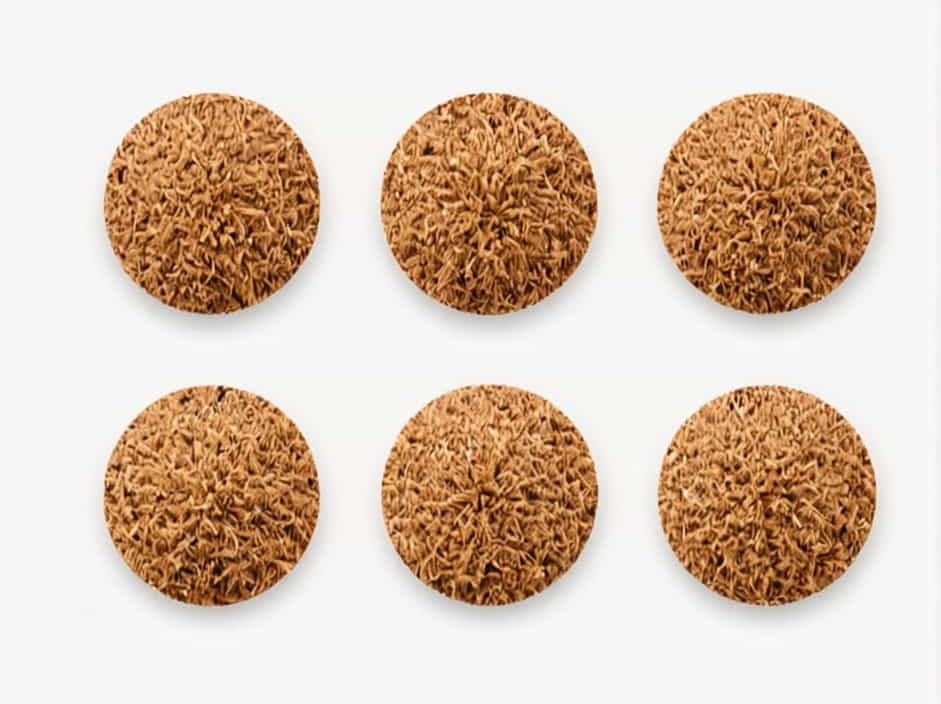Coir is a natural fiber extracted from the husk of coconuts. Known for its durability and versatility, coir is widely used in ropes, mats, brushes, mattresses, and even eco-friendly products. It is one of the strongest natural fibers and has been utilized for centuries in various industries.
This topic explores the meaning of coir, its characteristics, uses, benefits, and environmental impact.
Definition of Coir
The word coir refers to the fibrous material found between the hard shell and the outer coat of a coconut. It is a coarse, rough fiber that is resistant to water, bacteria, and decay, making it ideal for various industrial and household applications.
Coir is primarily sourced from countries with large coconut plantations, such as India, Sri Lanka, Indonesia, the Philippines, and Thailand.
Types of Coir
Coir fibers are categorized into two main types based on their maturity and characteristics:
1. Brown Coir
-
Extracted from fully matured coconuts.
-
Strong, coarse, and durable.
-
Used in mats, ropes, brushes, mattresses, and insulation materials.
2. White Coir
-
Derived from young, unripe coconuts.
-
Softer, finer, and more flexible.
-
Commonly used in ropes, fishing nets, and textiles.
Properties of Coir
Coir is valued for its unique properties, making it one of the most useful natural fibers.
1. Strong and Durable
Coir is highly resistant to wear and tear, making it perfect for heavy-duty applications like floor mats and ropes.
2. Water-Resistant
Unlike other natural fibers, coir has high moisture resistance, preventing it from rotting easily.
3. Elastic and Flexible
Coir fibers are naturally elastic, which helps in making ropes, brushes, and upholstery fillings.
4. Biodegradable and Eco-Friendly
As a natural fiber, coir decomposes safely without harming the environment.
5. Pest and Mold Resistant
Coir contains natural oils that prevent fungal growth, pests, and bacteria, making it ideal for gardening and household products.
Uses of Coir
Coir has a wide range of applications across different industries. Some of its most common uses include:
1. Household Products
Coir is widely used in making doormats, carpets, brushes, and mattresses due to its durability and resistance to moisture.
2. Ropes and Cords
Because of its strength and elasticity, coir is used in marine ropes, fishing nets, and industrial cords.
3. Gardening and Agriculture
-
Coir is an excellent alternative to peat moss in gardening.
-
Used in mulching, soil conditioning, and hydroponics.
-
Helps retain moisture and improve soil aeration.
4. Upholstery and Bedding
Coir fibers are used as fillings in mattresses, cushions, and seats, providing a firm and breathable texture.
5. Construction and Insulation
-
Coir mats are used in erosion control to prevent soil degradation.
-
Acts as insulation material for walls and roofs.
6. Eco-Friendly Products
With growing environmental concerns, coir is now used in biodegradable pots, packaging materials, and eco-friendly furniture.
Benefits of Using Coir
1. Sustainable and Renewable
Coir is a byproduct of coconuts, making it an eco-friendly and renewable resource. Unlike synthetic fibers, coir does not contribute to pollution.
2. Long-Lasting and Durable
Due to its tough structure, coir products last longer than many synthetic alternatives.
3. Improves Soil Health
Coir helps retain moisture, making it beneficial for plants and agricultural use.
4. Cost-Effective
Coir-based products are generally affordable and widely available, providing a budget-friendly alternative to synthetic fibers.
5. Resistant to Mold and Mildew
Natural oils in coir prevent the growth of fungus and pests, making it perfect for humid environments.
Coir vs. Other Natural Fibers
Coir is often compared to other plant-based fibers like jute, cotton, and hemp. Below is a comparison of its advantages:
| Fiber Type | Strength | Water Resistance | Durability | Common Uses |
|---|---|---|---|---|
| Coir | High | Excellent | Very Long-Lasting | Mats, Ropes, Gardening |
| Jute | Medium | Low | Shorter Lifespan | Bags, Clothing, Rugs |
| Cotton | Soft | Absorbent | Less Durable | Clothing, Towels, Textiles |
| Hemp | Strong | Medium | Long-Lasting | Ropes, Clothing, Paper |
Coir stands out for its durability, water resistance, and eco-friendliness, making it a superior choice for industrial and home applications.
Environmental Impact of Coir
Using coir instead of synthetic materials has a positive impact on the environment. Some key benefits include:
1. Reduces Waste
Since coir is a byproduct of coconut processing, it helps minimize agricultural waste.
2. Biodegradable and Compostable
Unlike plastics, coir naturally decomposes, reducing pollution.
3. Sustainable Farming
Coconut trees require minimal maintenance and provide a continuous supply of coir.
4. Reduces Chemical Dependency
Coir-based soil amendments reduce the need for chemical fertilizers in gardening and farming.
How to Choose High-Quality Coir Products
When buying coir products, consider the following tips:
1. Check Fiber Quality
-
Long fibers are more durable and strong.
-
Avoid coir products that feel overly brittle or weak.
2. Ensure Proper Processing
-
Well-processed coir should be clean, free from excessive dust, and evenly colored.
-
Poorly processed coir may degrade faster.
3. Consider the Purpose
-
For gardening: Look for coconut coir bricks or mulch.
-
For home use: Choose mats, brushes, or ropes with tightly woven fibers.
4. Check for Eco-Certifications
- Sustainable coir products often carry organic or eco-friendly labels.
Future of Coir Industry
The coir industry is rapidly expanding due to growing demand for eco-friendly and sustainable products. Innovations include:
-
Coir-based biodegradable plastics.
-
Advanced soil conditioning materials for organic farming.
-
Eco-friendly packaging alternatives to reduce plastic waste.
Countries like India and Sri Lanka continue to invest in coir processing technology, making it a globally recognized sustainable material.
Coir is a versatile, durable, and eco-friendly fiber derived from coconut husks. It is widely used in household products, gardening, construction, and industrial applications.
With its water resistance, strength, and sustainability, coir is an excellent alternative to synthetic materials. As the world moves towards sustainable living, coir remains a valuable natural resource that benefits both people and the environment.
